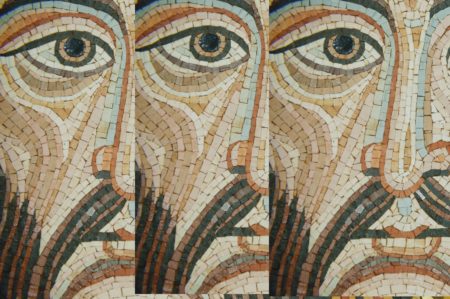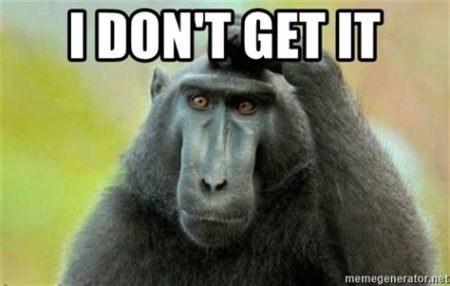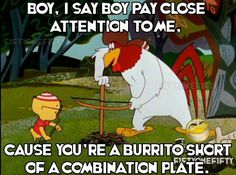 At tritheistblog, tritheist Steve Hays has replied to my objection that his christology, absurdly, features three Jesuses.
At tritheistblog, tritheist Steve Hays has replied to my objection that his christology, absurdly, features three Jesuses.
To clarify: the objection is not that there are three beings in his theory which one can or must call “Jesus.” A problem like that would be easy to solve. (“I say: only call this one ‘Jesus.'”)
Rather, the objection is that his christology entails that hiding behind the apparent one self of the gospels, the human Jesus, there are in fact three selves – again, the man, the godman, and the god (the eternal Son, second Person of the Trinity). If you like, call it the objection that his theory is “Nestorianism on drugs.” But I’m not a big fan of the traditional catholic heresy-labels; I think they tend to obfuscate more than they clarify. The point is that if Hays is right then walking around with the twelve disciples, and on the cross, and now exalted, are three different beings, three selves, which are (rather misleadingly, at best) portrayed as one self in the gospels.
As before, I edit out irrelevant verbiage.
…a doctrine of the Incarnation doesn’t require a timeless Deity.
This is arguably so, and here is an escape from part of my objection, if he cares to take it. A bit more on this below.
…generic orthodox Christology affirms that Jesus is a man, a real human being.
Depends on the theorist. There is a tradition of saying that Christ is “man” but not “a man.” This is associated with the idea that precisely because of the mysterious union of the Logos with the body and soul, the body and soul don’t combine to form a man in this case (for this would be a second person in the picture). The whole, composite Christ, on this view, is “man” because it has all the components which normally compose a human being, a human self (i.e. a rational soul and a human body).
As argued before, Hays’s theory has a man – it’s what he calls “the human nature.” But the whole, composite Christ is not a man, in his view, but rather some sort of whole that has a man as some sort of part or component.
1) That’s not three or even two Jesuses. In generic orthodox Christology, the Son asarkos isn’t Jesus.
 Hays here misinterprets the objection. It’s not that there is more than one on the theory called “Jesus.” So then, to say that we shouldn’t call the Son/Logos before he has a body “Jesus” is irrelevant to the objection.
Hays here misinterprets the objection. It’s not that there is more than one on the theory called “Jesus.” So then, to say that we shouldn’t call the Son/Logos before he has a body “Jesus” is irrelevant to the objection.
2) Although a combo of body and soul is sufficient to be a man or male human being, it’s insufficient to be Jesus.
Here, Hays admits that his “complete human nature” must be a man, a human self. He’s merely saying that he doesn’t call this one “Jesus,” because (as he said before) he prefers to call the whole, two-nature godman “Jesus.” As he says here,
…”Jesus” is the whole package: the divine Son Incarnate. Not just part of the package.
Of course, he can use the name “Jesus” how he wants. But my point stands that, contrary to the New Testament, his christology features three selves, and not one self.
At one point, Hays had made something that sounded like he was trying to collapse his Son and his godman into one and the same being. I said, “He’s saying that the god and the godman are the same self. It’s hard to see how that could be, when they’re not the same being!”
He now says,
There’s a conceptual distinction between God in himself and God’s economic relations. A distinction between necessity and contingency. That’s not unique to the Incarnation. For instance, there’s a distinction between God in the actual world and God in possible worlds.
Well, those are three different distinctions, and it’s not clear how these distinctions could help with his proliferation of Jesuses. Perhaps his idea is that the composite Christ is just the Son in relation to creatures. But no, the Son in his view is a self, an intelligent being, and so is the composite Christ, and his views entail that they are neither the same self nor the same being.
I’d said, “Remember, the first [the eternal Son] existed long before the second [the godman]. The first isn’t composite, but the second is. And he can’t say that the first changed into the second, as in his view, the first can’t change.”
Here’s where it could help his position to change his view of how divinity relates to time, so that he could say that the eternal Son gains a part (“the complete human nature”). But he can’t say that, as this would implicate the Son in change. That way of collapsing two of the Jesuses is closed off to him.
The union produced a complex person…
Yes, that is what he calls “Jesus,” what I’ve called the godman or the Composite Christ. But a part of him (the godman) is in Hays’s view the Son (i.e. the eternal second Person of the Trinity).
I didn’t say the union produced a “person”, simpliciter. Rather, I said the union produced a “complex person”. So, yes, it’s more than either side in isolation.
If something is complex and is a person, then it is a person. Hays’s point here seems irrelevant to the objection, which does not depend on saying that Christ (in this theory) is a non-complex person.
I’d said, “In his view, the Logos existed long before the other two”
No, in my view, the Son did not exist before the other two. The Son preexists Jesus. The Son preexists the human nature.
Once again, there is no Jesus apart from the Incarnation. The Incarnation doesn’t add Jesus to the Son.
Not clear what his point is here. If he’s objecting to the “long before,” let me just restate the point: in his view, the Son exists in timeless eternity, but “Jesus” (the godman) has a career that begins in the first century, as does “the human nature.” So neither of these latter two is numerically the same as the Son, in his view.
Another difference, I’d observed, was that “the godman, in his view, has two minds, but the man (what he calls “the human nature”) in his view does not ever have two minds.” And of course, neither does the Son. So again, three selves – three Jesuses where there should be one.
Once again, “the man” isn’t Jesus. In generic orthodox Christology, Jesus is more than a man. “Jesus” is the complete package. All the constituent elements in combination.
 Unfortunately, this misunderstands the objection, as explained at the top of this post.
Unfortunately, this misunderstands the objection, as explained at the top of this post.
Also, in the NT, “Jesus,” “Christ” etc. are on the face of it coreferring terms that refer to one who is explicitly called “a man,” and who is everywhere portrayed as a man, albeit one with an extraordinary origin, according to Matthew and Luke. Hays’s theorized entities which he calls “the Son” and “Jesus” (the godman) are on the face of it not men, either one of them.
The Son is ontologically independent of human nature he assumes. The human nature is dependent on the union.
Not relevant to the objection.
I’d said: “the NT records the one called “Jesus” undergoing numerous changes. For Hays, “Jesus” must refer to the Composite Christ. But one part of this, the Logos, is fully divine and so (in Hays’s view) can’t change in any way, being timeless. So if the Composite changes, it must be in virtue of the other part, the “human nature.” It is this which undergoes all the changes that a typical human does, short of changing from not-sinning to sinning, and so which must be a man, a human self. Hays has not given us any reason to think that this “human nature” that does all of these things is any thing less than a man.”
It’s a truism that human nature isn’t anything less than human. In generic orthodox Christology, Jesus isn’t subhuman. Rather, he’s both human and superhuman.
If a “human nature” is a property, then it isn’t can’t be a human being. If a “human nature” is a nature (i.e. individual entity, being) which is human, then yes, it it a truism that such a “human nature” is not less than human.
But Hays’s theory has a “Jesus” (the Composite) which has a man (“a complete human nature”) as some sort of part – but we’ve been given no reason to think that this somehow renders the Composite a real human being. Generally, if we take a human, and add a part to it, the resulting whole is not itself an additional human.
 If Hays is serious in insisting that his “Jesus” (the Composite Christ, the godman) is truly a human being, then on his theory Mary gave birth to two human beings, two human selves, on the first Christmas. But this is an untenable reading of the NT. There’s a man in the story, yes, but there are not two human sons there, nursing at Mary’s breast, one a proper part of the other.
If Hays is serious in insisting that his “Jesus” (the Composite Christ, the godman) is truly a human being, then on his theory Mary gave birth to two human beings, two human selves, on the first Christmas. But this is an untenable reading of the NT. There’s a man in the story, yes, but there are not two human sons there, nursing at Mary’s breast, one a proper part of the other.
In sum, Hays has done exactly nothing to address the objection that his christology, contrary to the New Testament, features three selves – the godman, the man, and the god – or in his preferred terms (respectively) Jesus, the complete human nature, and the Son.
Notice how the problem is veiled when you stick to his preferred terms – that’s why he prefers them!
Still a tri-Jes-ist, unfortunately!
Do you hold to a Chalcedon-inspired christology on which Jesus has “two natures,” a divine and a human one? If so, how do you keep the number of selves in your theory down to one?

Hays goes one more round, but he’s down to his insulting and ranting stage – he doesn’t seem able to directly face the objection. https://triablogue.blogspot.com/2018/05/prosopon.html
Hi Dale, I’m not responding to your comment, just wondering if you received the donation I made. It’s the first time and I,m not sure I did it right. Haven’t received any confirmation, just want to be sure you got it. By the way really enjoyed the two part series with Buzzard and Hurtado Thanks
Yes I did – thank you! Also, there will be a book coming your way. 🙂
Comments are closed.